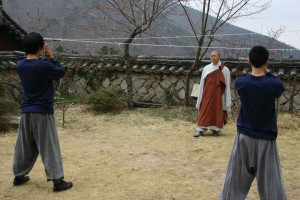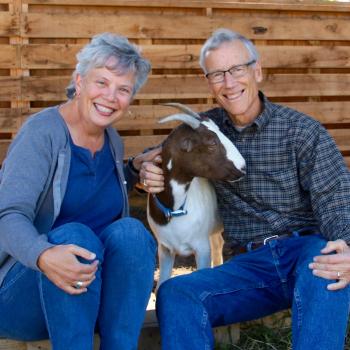Here is the final post in a series of reflections by guest blogger Bob Sessions:
When God gives of God’s self, one of two things happens: either flesh is inspirited or spirit is enfleshed. It is really very clear. I am somewhat amazed that more have not recognized this simple pattern: God’s will is incarnation. And against all of our godly expectations, it appears that for God, matter really matters. God, who is Spirit, chose to materialize! We call it the Christ Mystery. –Richard Rohr, Near Occasions of Grace
To refresh your memory, in my last post I wrote this:
“I find myself in awe on a regular basis: at the intelligence of my body that can learn and remember so many intricate maneuvers, at human ingenuity in creating such amazing tools, materials and processes, at the laws of physics that give us such an orderly and predictable world, and perhaps most at how blessed we humans are in being able to know and appreciate the beauty within and around us.”
Today I want to flesh out what is involved in this awe, wonder, and appreciation.
The thread that holds together my reflections on manual labor is my growing sense that metaphysical dualism is a fundamental spiritual mistake. I believe the separation of mind and matter, spirit and flesh, or the imminent and transcendent has caused great damage to people’s spiritual lives. That’s why in this set of blogs I have approached spiritual practice through manual labor.

Let me give an example. Several years ago, Lori and I spent time in a Buddhist monastery in South Korea. The monks there practiced a form of martial arts that kept them in top physical shape and gave them the endurance to be able to meditate eight hours per day. Every part of their lives, from eating to breathing, was practiced with exacting discipline and imbued with symbolic power. For them, the physical was infused with the spiritual, and the spiritual with the physical. While most Benedictine monks don’t practice martial arts, physical activity is blended into their spiritual lives in a similar way.
The goal of such spiritual disciplines is to bring the monks into full touch with the divine, which is to be in the most perfect state humans can achieve. It’s about full humanity and the realization of the highest human aspirations. It’s not about separating the physical from the metaphysical or denying one’s material being. In fact, for most of us you can’t have the one without the other.
When you approach the activities of life with proper attention (what the Buddhists call mindfulness) your awareness of how remarkable the world is grows. Your sense of awe blossoms. To be in awe is to transcend your everyday ego concerns in wonder and appreciation for the intricate and subtle beauties of the world. But it is not to transcend the material world into some super- or non-natural place or state. I hope my reflections on manual labor show that what is actually going on is a deeper appreciation for what we usually fail to notice when we are not mindful. What is transcended is a lesser state of awareness.
So why do so many religious traditions denigrate the material world, especially our bodies? Clearly we have physical and psychological limitations and barriers to this “higher” state of being and experience—our emotions and desires can inhibit our spiritual growth, in particular. But manual labor, like meditation or singing, can be a context wherein we diminish the negativities of body and soul, which can help us open to greater awareness and grateful appreciation for being alive in this infinitely wondrous world.
Gotta run–there’s a door that needs fixing downstairs.











